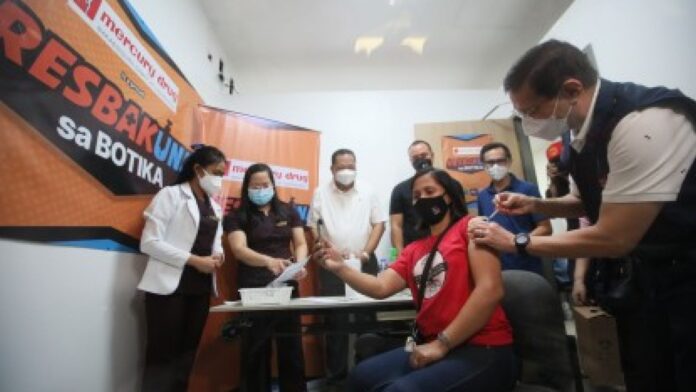The government is evaluating and will address the reasons why some areas are lagging in their coronavirus disease 2019 (Covid-19) vaccination drives.
Among the reasons may be the inability of those in remote areas to go to vaccination sites, National Vaccination Operations Center (NVOC) chair, Health Undersecretary Myrna Cabotaje, said during a Laging Handa public briefing on Friday.
“Tingnan nila, baka iyong health center, iyong mga bakuna center ang ilapit doon sa mga mamamayan. Tapos may iba’t iba pang mga rason, at iyon ang bibigyan nila ng pansin at kanilang tutugunan (They should check the possibility of bringing the health or vaccination center closer to the people. There may be other reasons. They should look into these),” Cabotaje said.
She noted that infected health care workers or suspected virus carriers also slowed down the vaccination in some areas.
The main goal of the “Bayanihan, Bakunahan” national vaccination drive on February 10 and 11 was to capacitate areas with low inoculation rates and cater to more senior citizens.
The national program has been extended until February 18.
“Para bigyan natin ng mas maraming panahon iyong ating mga publiko, iyong ating mga mamamayan para mag-avail ng kanilang first dose, iyong second dose at saka iyong kanilang booster para kumpleto ang ating proteksyon. Sabi nga natin na kapag lahat ay bakunado, lahat tayo ay protektado ([This is] to give more time to the public, those who will avail of their first dose, second dose, and booster shot for complete protection. As we said, if everyone is vaccinated, we are all protected),” Cabotaje said.
The Philippines has received 222,449,820 Covid-19 vaccine doses nearly a year after the first shipment of 600,000 Sinovac doses, donated by China, was delivered on Feb. 28, 2021.
Overall, 60,689,878 Filipinos nationwide are now fully vaccinated. (PNA)


